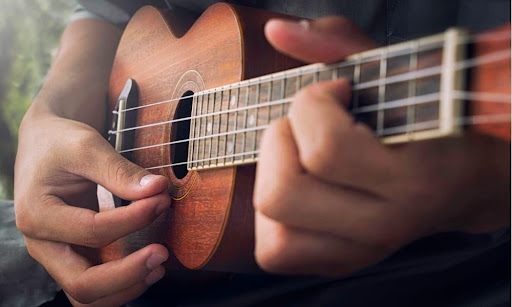UKULELE LESSONS
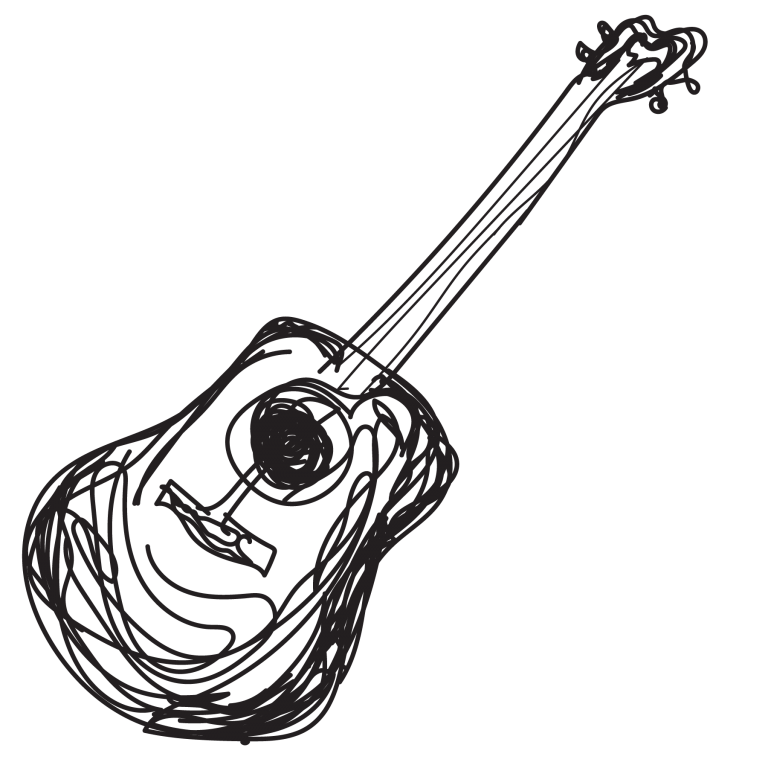
A Brief History of the Ukulele
The ukulele is a small guitar-shaped instrument that first appeared in Hawaii in the 1880s, introduced by Portuguese immigrants familiar with similar instruments. The Hawaiians were so moved by a performance of the ukulele that they named it the “Jumping Flea” (which, in Hawaiian, is “ukulele”). The term referred to the speed of the player’s fingers over the fretboard. Hawaiian King Kalākaua liked the sound and look of the ukulele so much, he insisted that all royal musical events include it. It has been associated with Hawaii ever since.
The ukulele eventually became popular worldwide, particularly because it is such a portable and affordable instrument with such a happy sound. A ukulele fad hit the United States in the 1950s and waned shortly after with the emergence of rock. It’s an awesome instrument to learn for many reasons, and its affordability, portability, and simplicity leadmany beginner music students to sign up for lessons.
Characteristics of a Ukulele
A close cousin of the acoustic guitar, a ukulele is a smaller fretted instrument that is played by strumming with either the fingers or a pick. The smaller body of the ukulele lends itself to higher pitch and lower volume, which helps to create the ukulele’s distinctive sound. You will often hear the ukulele in pop, rock, folk, and even classical genres where its clean, high tones create a unique atmosphere.
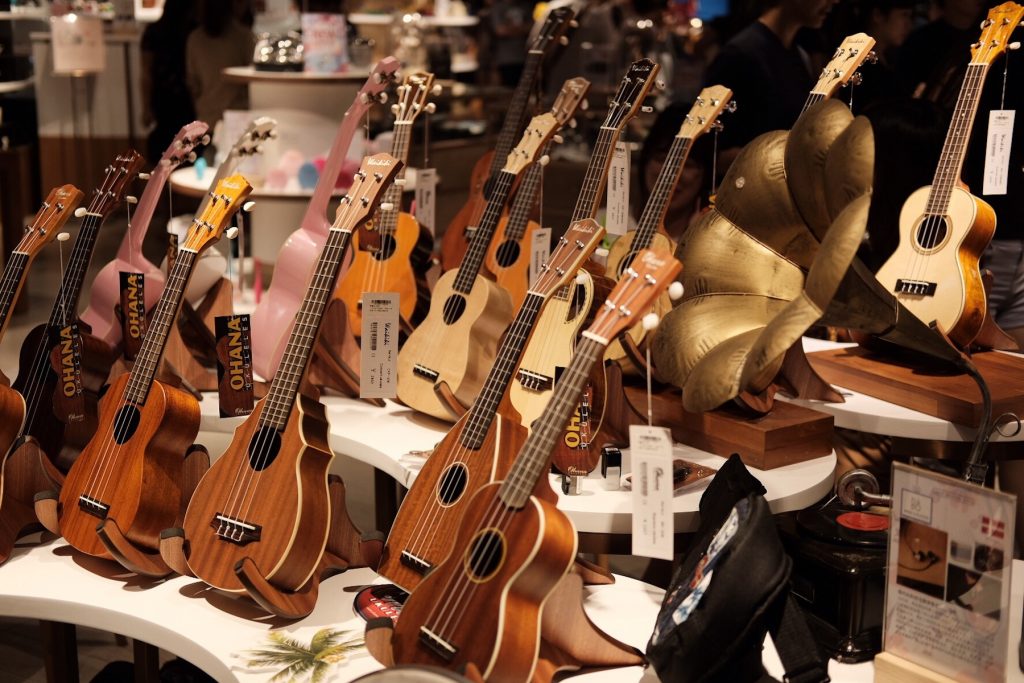
IN-DEPTH INSTRUCTION
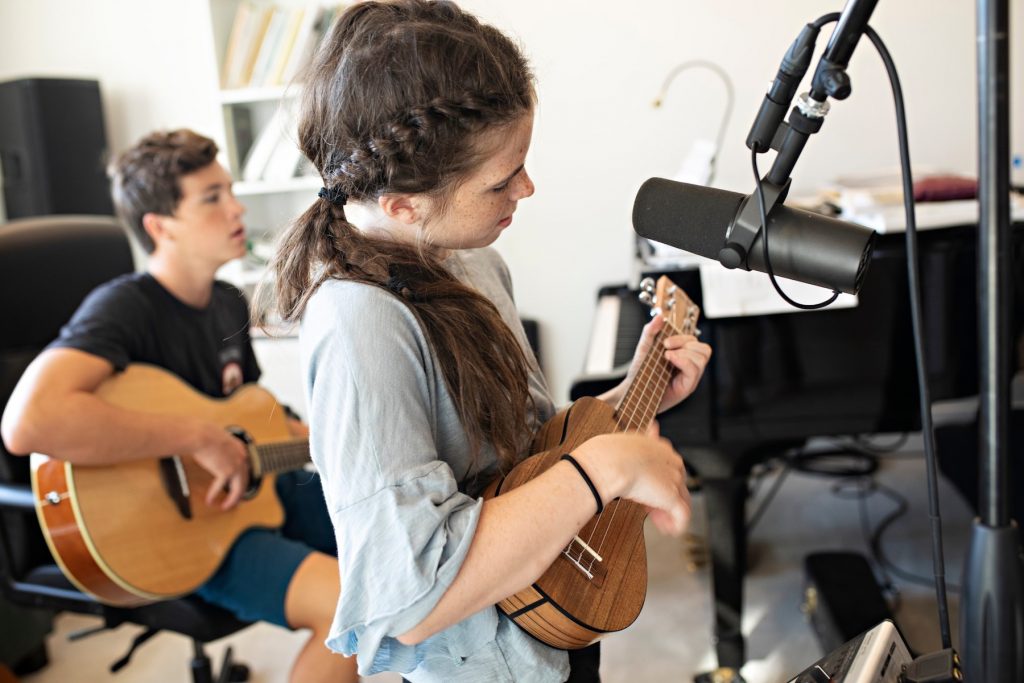
At Sloan School of Music, we offer comprehensive instruction to help you reach your ukulele playing dreams. Whether you are interested in playing live shows with your local band or recording some studio samples, we can help you build your musical knowledge to ensure that you can perform at a professional level. A new player will learn strumming and fretting techniques, posture, and instrument care. Scales, chords, and exercises will help you get comfortable with the instrument and build a level of technical expertise. As your skills progress, your expert instructor will provide you with songs and exercises of increasing difficulty, to help you hone your playing skills.
MUSIC THEORY AND PERFORMANCE
In addition to taking on the technical aspects of your playing, you will learn music theory, including keys, rhythm, and meter. You will learn to read charts and sheet music, so you can play anything that comes your way. Your instructor will further assist you with performance techniques and practice, so that you can be confident with your playing, whether you’re in the studio or on stage.
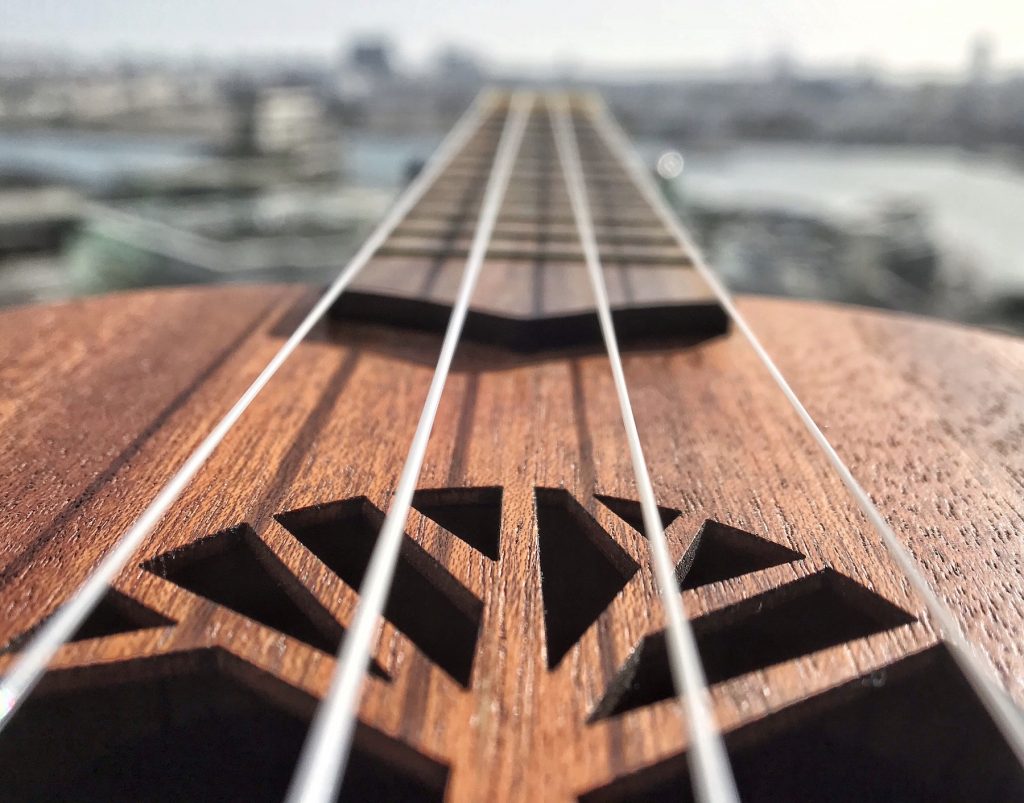
learning The ukUlele
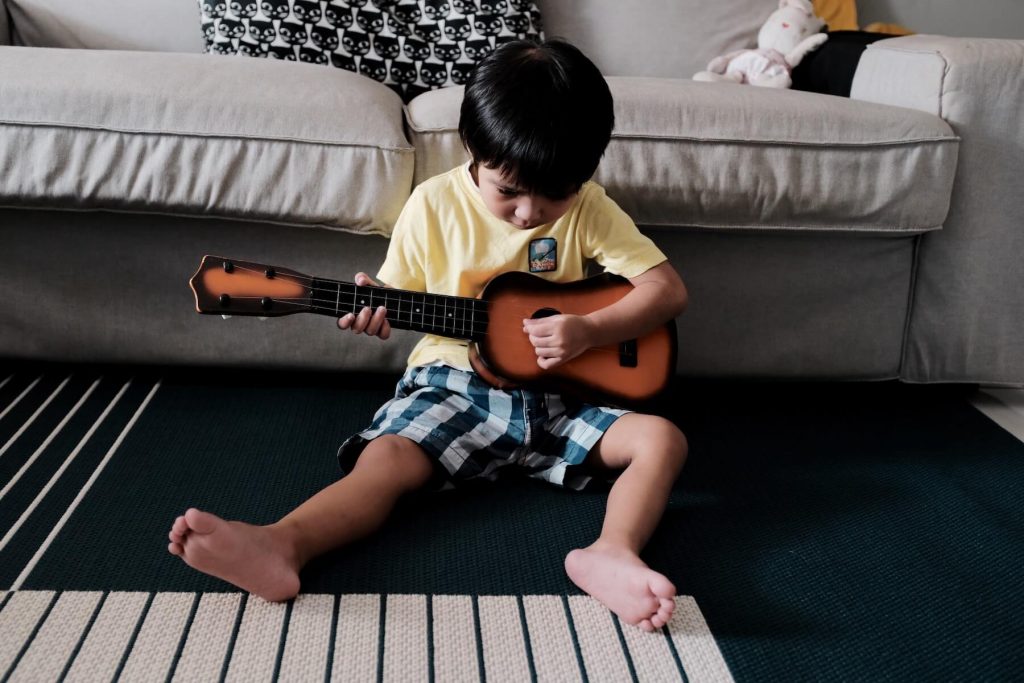
Types of Ukuleles
The ukulele’s tone and sound vary with the size and model. They usually come in four sizes:
- Soprano
- Concert
- Tenor
- Baritone
There are several less-common variations, too, including the sopranino (or pocket ukulele), bass, and contrabass. The standard-sized ukulele is the soprano. The next most common types are concert, tenor, and baritone. The concert-sized ukulele appeared in the 1920s and was intended to be a sort of enhanced soprano ukulele – a bit bigger and louder, with a deeper tone.

The Benefits of Ukulele Lessons at Sloan School of Music
The team at Sloan School of Music is passionate about the overall benefits of music education. Learning to play an instrument produces amazing effects for the brain and for learning in general. We have seen our music students improve their academic performance, social skills, and cognitive abilities while fine-tuning their artistic self-expression.
Our instructors offer private lessons and group classes for students of all ages and levels. We teach ukulele lessons to players at all levels, from beginners to more advanced students seeking to improve their repertoire and performance.
Ukulele lessons will teach you how to tune, play, and properly care for your instrument. Learning ukulele builds muscle memory as you learn to read and play chords and improve your skills. Online lessons are available, but in-person instruction gives you a much broader exposure to music theory and practice.
The Benefits of Ukulele Lessons at Sloan School of Music
Anyone ready to jump into ukulele lessons for themselves or a child will probably have a few questions. Here are some we hear often when students explore learning the ukulele at Sloan School of Music:
What Do I Need to Know Before Learning the Ukulele?
Here are a few good tips to get started:
- Learn how to tune your ukulele. Your music teacher can help you with this.
- Always maintain a comfortable playing posture. This starts by holding your instrument in a relaxed manner. Keep your thumb directly behind the neck of the ukulele. Hold it close to your belly and keep your fingers parallel to the frets.
- Learn the five most popular ukulele chords.
- Use a metronome to keep your tempo lively.
- Hum the song lyrics while playing slowly.
Another great tip is to find a teacher passionate about the ukulele. That can make your lessons more fun and get you excited about becoming a good player.
Is Ukulele Easier Than Guitar?
The ukulele has nylon strings that are much gentler on your fingers than the metal strings used on many guitars. The ukulele also has only four strings, which means chords are easier to learn than on a guitar. Students wanting to become better ukulele players understand that good technique takes time and lots of practice.
Which Kind of Ukulele Is Best for Beginners?
Your music teacher can help you find the perfect instrument for you. When you are starting, a good-quality soprano ukulele might be your best choice. The best advice here is to get your music teacher to guide you.
What Is the Most Popular Ukulele Size?
Probably the soprano, which is the most popular among students. A soprano ukulele has 12-15 frets and four strings: G, C, E, and A.
What Is the Difference Between the Sizes?
There are four main sizes of ukuleles: soprano, concert, tenor, and baritone. The baritone ukulele has a different tuning from the other three (strings D, G, B, E). Standard ukuleles have strings G, C, E, and A.
Are Plastic Ukuleles as Good as Wooden Ones?
Plastic ukuleles came about for people wanting a durable instrument that could stand up to travel and harsh conditions such as heat, cold, and moisture. Plastic ukuleles are just as good for sound production as wooden ukuleles in a technical sense. Wood is porous, though, which causes sound to resonate more in the instrument’s body, so wooden ukuleles produce a richer tone. Serious ukulele musicians will favor a quality wooden ukulele, but beginners might prefer the durability of a plastic one.
Another common question is about where to find a good ukulele teacher. Sloan School of Music has instructors who love to play and teach the ukulele, and students respond to that affection. Contact us today to book a class.
Music Lessons Across Two Locations
The Sloan School of Music has two convenient locations in Hagerstown, Md., and Urbana, Md. We sell only the finest quality musical instruments there, including a wide range of ukuleles. Our friendly staff will help you find the right gear, including the right ukulele for your skill level, and give you excellent musical advice at both locations.
UKULELE INSTRUCTORS
Are you interested in taking up the ukulele? Or perhaps you’re a seasoned player looking to hone your craft. Either way, Sloan School of Music has instructors for all skill levels. Check out our ukulele instructors below!

MIke Haverty

FRED WILLIAMS


